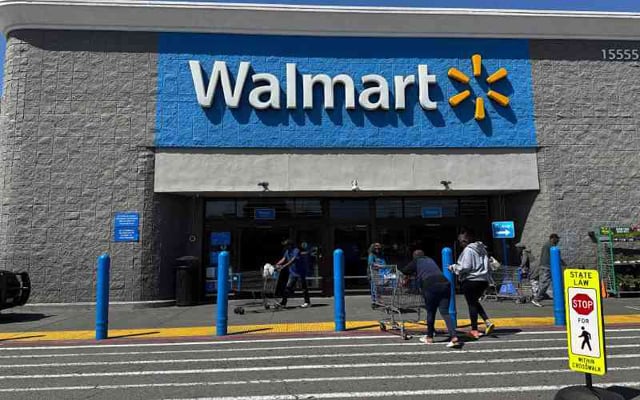News Flash
News Flash

NEW YORK, May 16, 2025 (BSS/AFP) - Walmart on Thursday reported another solid quarter but warned of price increases due to President Donald Trump's tariffs on China and other major trading partners.
"We will do our best to keep our prices as low as possible but given the magnitude of the tariffs, even at the reduced levels, we aren't able to absorb all the pressure," Chief Executive Doug McMillon said in a conference call with analysts.
Executives with the big box store chain welcomed the de-escalation of the US-China trade war announced this week, but said the levies on China remained too high. The tariffs have a particularly strong impact on items such as electronics and toys.
Consumers will begin to see more price increases in the latter part of May, with a more noticeable impact in June, said Chief Financial Officer John David Rainey.
"If you've got a 30 percent tariff on certain items, you'll likely see a double digit" price increase, Rainey said in an interview with Yahoo Finance.
Walmart officials said the extent to which tariffs are passed on to consumers will depend on the individual item.
Rainey said Walmart saw an opportunity to play "offense" with some products, meaning the retail giant could absorb more of the tariff to keep prices lower and boost its market share.
"We could see higher prices on some non-tariffed items and stable or even lower prices on some tariffed products," said CFRA Research senior equity analyst Arun Sundaram.
- Uncertain profit hit -
The comments came as Walmart reported profits of $4.5 billion, down 12.1 percent from the year-ago level, but topping analyst expectations. Revenues rose 2.5 percent to $165.6 billion.
The retail giant posted a 4.5 percent rise in first-quarter comparable sales in Walmart's US stores behind another robust performance in groceries.
McMillon said Walmart's scale enables it to absorb tariffs on some items without passing them on to consumers. In some cases, suppliers have shifted to materials without tariffs such as fiberglass instead of aluminum, which has a tariff.
McMillon flagged tariffs on countries like Costa Rica, Peru and Colombia on items such as bananas, avocados, coffee and roses.
"We'll do our best to control what we can control in order to keep food prices as low as possible," McMillon said.
Besides China, Walmart imports heavily into the United States from Mexico, Vietnam, India and Canada. The Trump administration is at various stages of negotiation following the president's sweeping April 2 announcement that affected all US trading partners.
While maintaining its full-year projections, the company did not offer a range on its second-quarter profit outlook, citing uncertainty around US trade policy.
Neil Saunders, managing director of GlobalData, said Walmart was better positioned than other retailers amid the tariffs because of the importance of grocery, a category where "consumers will continue to prioritize spending out of necessity," he said in a note.
"Although the waves caused by tariffs now seem to be calmer, it would be incorrect to assume that the waters are completely safe. There will be a lot of further disruption ahead," Saunders said, adding that Walmart is "one of the sturdiest ships" in retail.
Shares initially rallied on the earnings, but fell after Walmart's comments on pricing increases.
CFRA analyst Sundaram said the fall in shares reflected investor disappointment that Walmart didn't raise its full-year outlook after recent positive developments on the tariff front.
"Uncertainty grew when Walmart chose not to provide second-quarter profit guidance," Sundaram said. "While we still believe the company can exceed its full-year operating profit and (earnings) forecasts, we now expect more earnings volatility over the next few quarters compared to our initial projections."